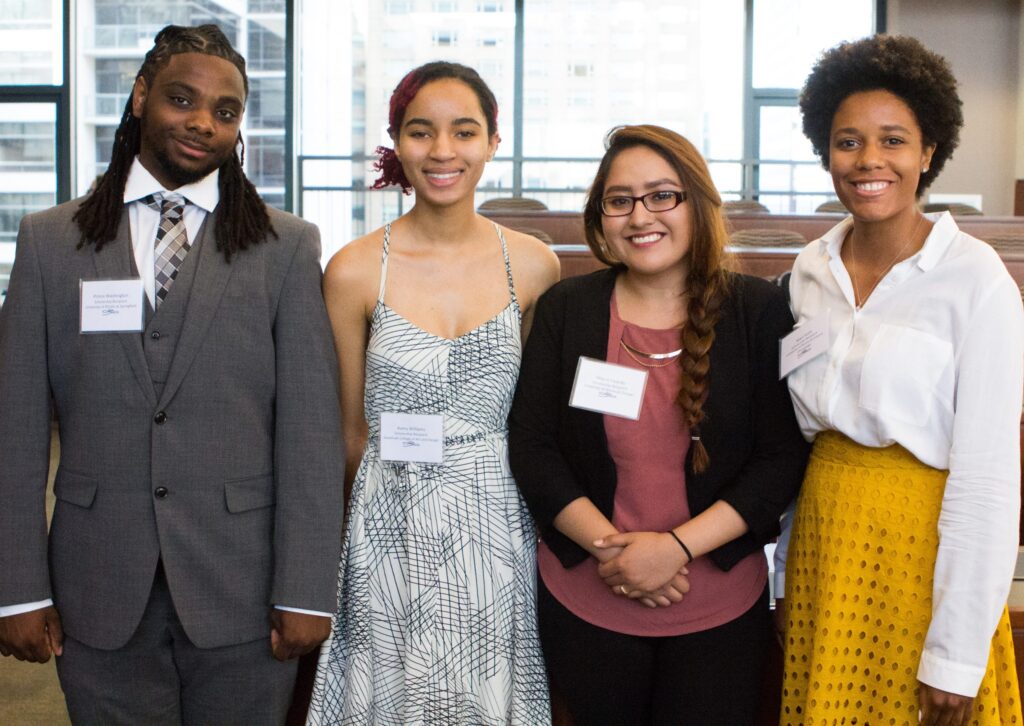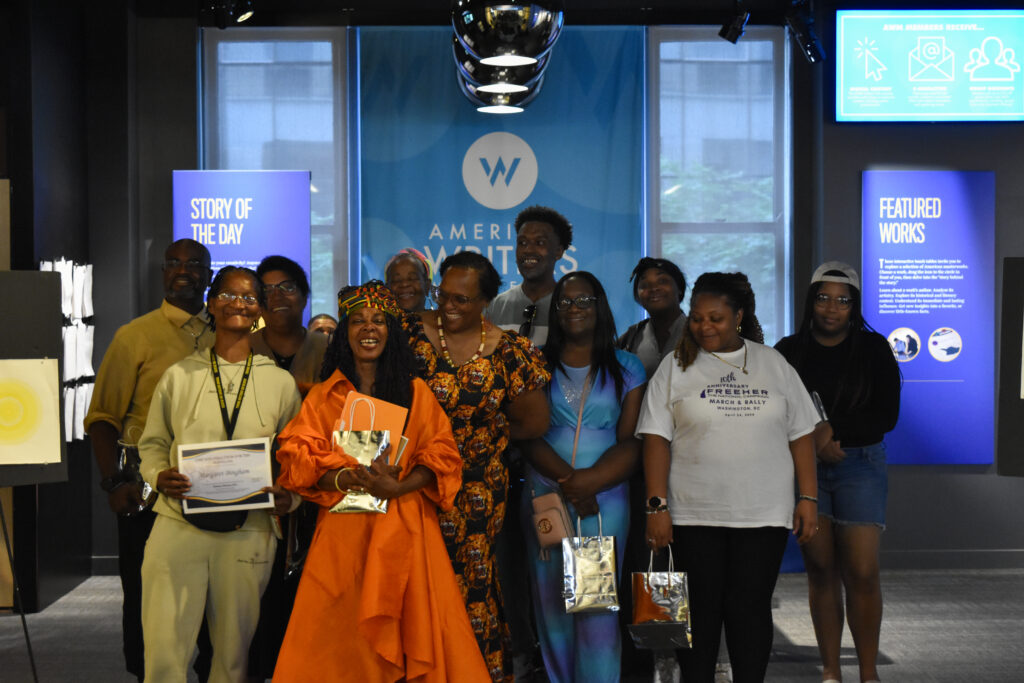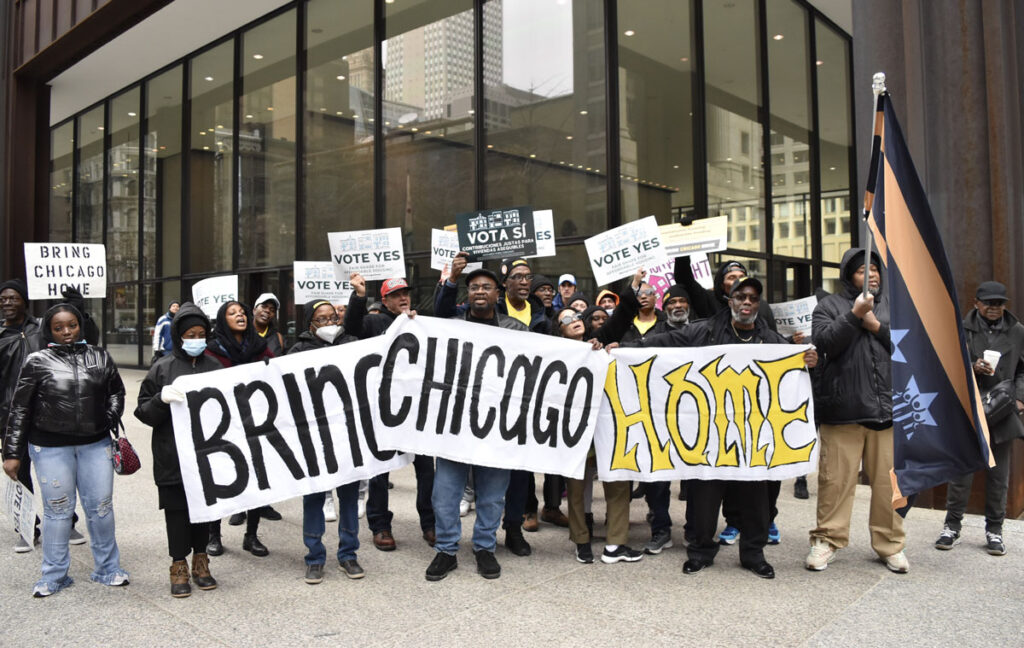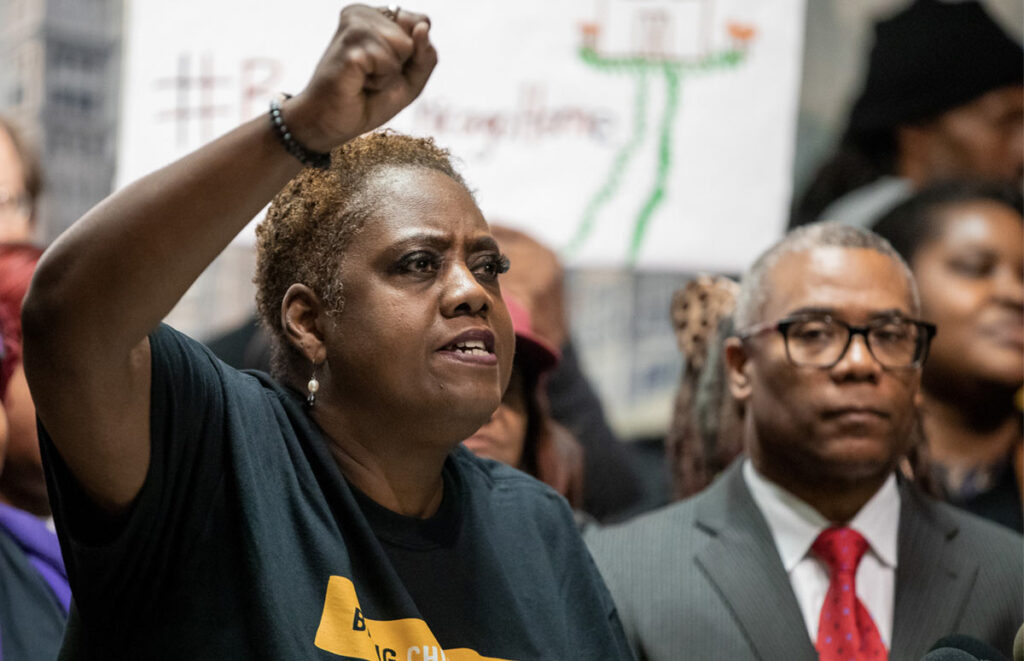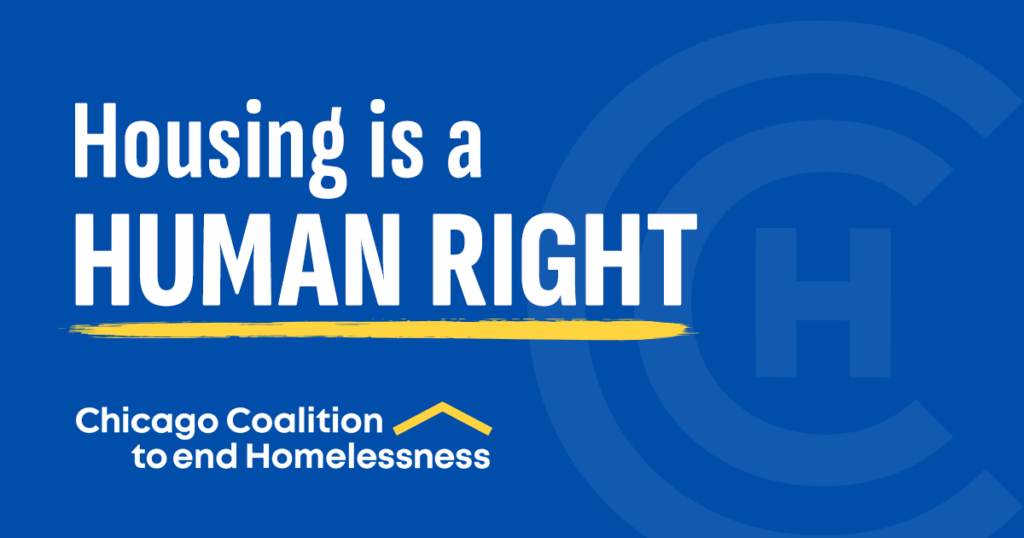Since 1980, the Chicago Coalition to end Homelessness (CCH) has organized and advocated to make housing a human right.
History of CCH
Founding of CCH
CCH is organized by social service providers to address increases in homelessness caused by the rapid loss of single-room occupancy (SRO) housing, beginnings of gentrification, and major cuts to federal housing programs.
CCH is legally incorporated on September 10, 1982.
Creation of Youth Committee
In response to the 1983 murder of a youth experiencing homelessness in Uptown, Chicago, CCH launches its Youth Committee. Made up of 30+ youth-serving organizations, the committee advocates for policies and resources to support unaccompanied youth.
CCH hires its first Executive Director and establishes its first independent headquarters.
Presidential Towers Campaign
Throughout this long, high-profile campaign, CCH wins 165 units for low-income families and 1,014 project-based Section 8 certificates in Presidential Towers—an upscale, government-subsidized West Loop complex that had been exempted from affordable units. The campaign also secured a settlement that launched the first funding for Chicago’s Low Income Housing Trust Fund.
Formation of Latino Task Force*
Created to address the often-hidden problem of homelessness in the Latinx community, working on issues such as discrimination and access to benefits.
South Loop Campaign for Development Without Displacement
Launched to preserve affordable housing in the neighborhood that housed CCH’s office at the time, the campaign created two new SRO buildings and preserved six others.
Formation of the Coalition to Protect Public Housing*
In response to federal mandates to demolish all of Chicago’s public housing high rises, a coalition is formed to protect the rights of public housing residents and advocate for more public housing options.
Founding of the Law Project
CCH launches its legal aid program, the Law Project, focusing on the needs of students experiencing homelessness.
Jobs and Living Wage Campaign
Working with other community organizations, Chicago passes a Living Wage Ordinance that creates an average annual wage increase of $5,000 for about 10,000 minimum wage workers.
It Takes a Home to Raise a Child Campaign
With a focus on statewide impact, this campaign created an emergency assistance program for families at risk of homelessness (1999), a rental subsidy program (2005), and new funding for the development of affordable housing (2007).
Formation of Day Labor Project *
Created to regulate exploitative practices in an industry that many people experiencing homelessness participated in.
Founding of CCH’s College Scholarship Program
Since 2004, the college scholarship program has awarded $770,000+ in support to 94 public school students who have experienced homelessness.
Opening of Youth Futures
A mobile legal aid clinic opens to better serve students at Chicago Public Schools (CPS) and unaccompanied youth.
Formation of PART*
The Prostitution Alternatives Round Table (PART) acknowledged that many women engaging in the sex trade or being trafficked were experiencing homelessness. The group sought to create alternate criminal justice responses to prostitution.
Big Box Campaign
As a member of the Grassroots Collaborative, wins an increase to the minimum wage in Illinois.
Start of the Reentry Project
The Reentry Project addresses housing and job barriers for people impacted by the criminal legal system.
Creation of Speakers Bureau
Made up of grassroots leaders who have experienced homelessness, the Speakers Bureau educates community members and provides opportunities for shared advocacy.
Sweet Home Chicago Campaign
Sweet Home Chicago sought to dedicate 20% of TIF funds generated each year for affordable housing. The campaign won a small victory of TIF funds going to purchase and rehab foreclosed properties, but it also lifted CCH’s profile as an organizing group in Chicago.
Creation of State Network
CCH’s State Network mobilizes 30+ housing providers, homeless agencies, congregations, and Continuums of Care in 15+ suburban and downstate communities.
Formation of RROCI
The Reentry Project and allies create the Restoring Rights and Opportunities Coalition of Illinois (RROCI) to work on statewide reentry measures.
HomeWorks Campaign
HomeWorks advocated to create affordable housing and improve school services for families and students experiencing homelessness in Chicago.These efforts resulted in Chicago Public Schools enacting a strengthened homeless education policy as well as the creation of the Families in Transition (FIT) program.
Launch of Streetlight Chicago
CCH partners with Young Invincibles to create Streetlight Chicago, a free app and website with resources for unstably housed youth.
CCH releases its first annual estimate of Chicago’s homeless population using a census-based methodology developed by CCH, Heartland Alliance’s Social IMPACT Research Center, and Vanderbilt University. The estimate includes people who are sheltered, unsheltered, and living doubled-up, providing a more accurate snapshot of what homelessness looks like across the country.
Launch of the Racial Equity Committee (REC)
REC works to implement, support, and advance equity and racial justice both internally and externally to our organization.
Launch of the Bring Chicago Home (BCH) campaign
The BCH coalition advocates for a new revenue stream that would be legally dedicated to providing permanent affordable housing with wraparound supportive services to people experiencing homelessness in Chicago.
Formation of CPS Focus Group
The CPS Focus Group works to increase resources and improve opportunities for students experiencing homelessness within Chicago Public Schools.
Creation of Edrika Fulford Mutual Aid Fund
Created in response to the COVID-19 pandemic, the Edrika Fulford Mutual Aid Fund provides low-barrier direct cash-assistance grants for Illinoisans experiencing or at risk of homelessness.
*Sunsetted program/initiative
The post History of CCH appeared first on Chicago Coalition to end Homelessness .

